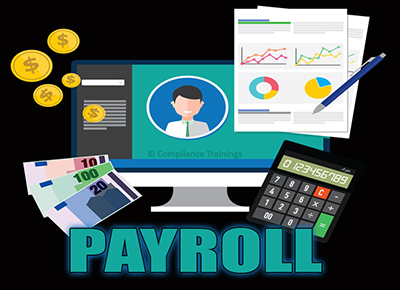Paying an employee is not simply multiplying the hourly rate by the number of hours worked to get the gross wages and deducting the taxes from that. Processing a paycheck correctly is infinitely more complicated. Accurate decisions must be made to determine the final outcome of the wages owed. These decisions involve the application of a complex set of wage and hour laws and tax regulations. Misunderstanding the meaning of the term “regular rate of pay”, violating the “salary basis rule” or failure to withhold taxes properly for a multistate employee are just a few of the areas where even one wrong decision can result in grave consequences for the employer.
For that error will be costly in terms of penalties, fines and interest. But these complex wage and hour or tax laws do not even scratch the surface of what payroll must comply with to properly process a paycheck. Other laws and agencies must be satisfied as well. One of the most challenging of these laws involves deducting for garnishments. Whether it is for child support, tax levies or to repay a creditor loan, garnishments must be handled properly. Deducting too little and the employer face fines from the one issuing the garnishment. Take out too much and the employee will have reason to sue. It is a fine line to walk indeed.
Areas Covered in the Session :
- Understand how to calculate overtime correctly under the Fair Labor Standards Act.
- Know when you can and cannot deduct from an exempt employee’s salary.
- Be able to determine the proper state income tax to withhold when an employee lives and works in two or more states and which state gets the unemployment insurance.
- Understand what are the rules and regulations governing the withholding for child support, federal and state tax levies, creditor garnishments, voluntary wage assignments and bankruptcies.
- Learn how to handle overpayments under both wage and hour law as well as IRS regulations and what to do if the overpayment and the repayment occur in separate tax calendar years.
- Learn the tax ramifications of third party sick pay and how whether the insurance company is the employer’s agent or not the employer’s agent affects the taxation and reporting of the wages.
- Understand what is considered abandoned wages and how to track, remit and report them properly to the correct state agency.
- Comprehend the basic taxation and calculations concerning the personal use of company property including cars, airplanes, cell phones, tablets and housing.
- Have a basic understanding of when meals and lodging provided by the employer are taxable wages to the employee and when they are not.
- Be able to determine when an auto allowance paid to an employee is taxable income.
- Understand the basic tax rules concerning items paid out of accounts payable such as prizes, awards, bonuses, educational assistance payments and relocation benefits as well as the definition of de minimis.
Who Should Attend:
- Payroll professionals
- Human resources professionals
- Accounting professionals
- Finance professionals
- Business owners
- Legal professionals
- Anyone responsible for the compliance issues of a payroll department
HR2771


